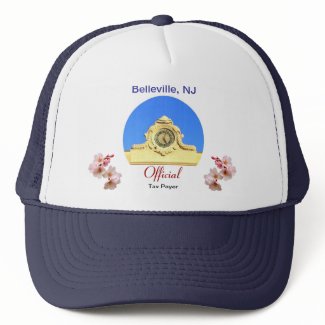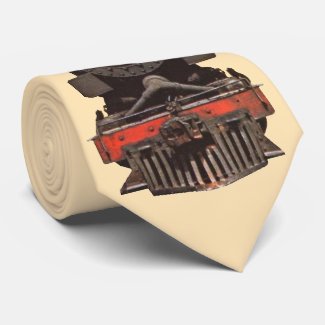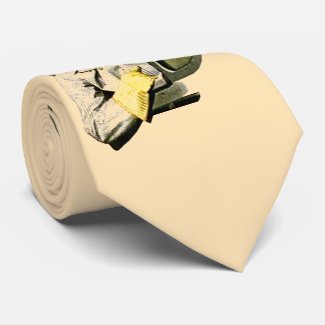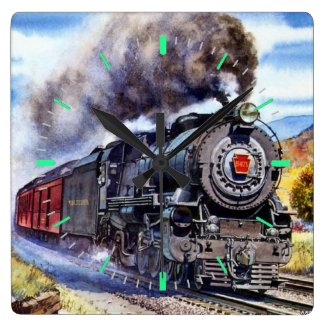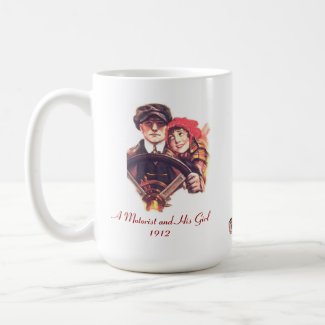Belleville's Bones
This one dates back to Revolutionary War days and relates to us the fate of a local resident who was accused, either justly or unjustly, of being a spy for the British forces and how, in his own unique way, he is still among us.
Andrew was known to be a good farmer in our fair village back in the days of George Washington's War. He was also known to be a remarkably good listener, listening with focused attention whenever others spoke. A good listener is always welcomed among people who loved to talk and who love to be heard. Because of this trait, Andrew was gladly admitted to many circles. He was an attentive listener whenever a group gathered to discuss the matters of the day, always nodding, smiling agreeably, saying nothing.
Now, it was well known that there were both patriots and loyalists among the villagers, sometimes even families were divided on the issues of war. Sometimes Andrew would hear a thing or two that was not meant for one group or the other to know about. Sometimes it was thought that he listened even when he had not been invited to join a conversation.
The war was a day-to-day affair in the Village of Second River. While great battles may have been fought elsewhere, the war in Second River was a matter of dodging flying lead balls as one went about ones daily chores. Fetching a pail of water at the well was a risky bit of business. A contingent of British troops were arrayed across the Passaic to restrict access to the Schuyler copper mine and to keep an eye on the village since it was such a hot-bed of patriot activity. With these adversaries so close to each other, neither side could resist the opportunity to send a musket ball whizzing across the river when a head would appear.
Though watchmen were posted in the old Dutch Church steeple and sentries guarded the river front, all those folks who were within musket-shot range near the river lived a nervous existence. It was decided that a raid across the river to push back the snipers to a respectful distance was in the best interests of the villagers. The raid was planned in absolute secrecy. It would be a total surprise. In the quiet hours of a moonless night, local members of the Second Essex Regiment slid across the Passaic to root out the hornets nest. Ambush ! The British were waiting. It took the very best military skills of the patriots to scramble back across the river.
"This is an outrage", shouted the local General. "How did they know ?" Someone was needed to blame for this ! Surely it must be someone's fault that this perfect plan didn't work. A soldier, intent upon calming the General's rage suggested that maybe old Andrew, who heard so many things, was to blame. It seemed like a good idea to quickly find a culprit to sooth the General's anger and embarrassment. Another soldier volunteered that Andrew was sometimes thought to be seen listening at window sills to hear what might be going on inside a house. It must be him ! Indeed !
The raiding party rushed to Andrew's farm. They stormed his house. They roused him out of bed. "It wasn't me", protested Andrew after hearing the accusations. "It wasn't me", he said as they dragged him out to the lane. "It wasn't me", he insisted as they conducted a proper military trial right there in the lane before his farmhouse. They took old Andrew to the banks of the Second River by his home and they hanged him right there from a crooked limbed tree. It is said that the last thing old Andrew gurgled while suspended from the hangman's noose was, "It . . . wasn't . . . me !"
They left old Andrew there 'til his bones glistened white as a warning to others who might be tempted to hear too much. But old Andrew had long gone to the otherworld where the Brethren there were quite surprised to see him since he had not been summoned. When pressed for an explanation for his presence, all he could utter in response was, "It wasn't me"!
Now, the Brethren of the otherworld have ways and means generally beyond our ken. They agreed amongst themselves that Andrew's spirit should be returned to Second River to prove his innocence, if he could. Thus it was that on many a night afterwards, frightened villagers reported seeing old Andrew's bones there, letting himself down from the tree and walking about the village, listening wherever he could, intent upon learning who really did spoil the raid on that quiet moonless night.
Now, it's not that the villagers were a superstitious lot but after a number of sightings, they thought it the Christian thing to do to have the bravest among them take down those bones and bury them. And when the sightings continued, they chopped down the tree as well. But still his bones were seen skulking about the village, listening to every conversation.
It is said that Andrew is still here in town, listening as you speak. He may lurk beneath your own window sill, listening to everything you say. Maybe you are a relative of the one who told and spoiled that raid during George Washington's War. You can tell when he is near. His rattling bones sound like hollow wood wind-chimes as he moves and, given his advanced age, he tends to creak a bit. Or, you may see just a glint of light as the moon shines on his polished white bones. And for goodness sake, be careful what you say. You should, at least, be very careful if you go out on Halloween. Old Andrew is not the only ghost from Belleville's past that still lingers in our village.

Visit our website. There are now Post Cards from Belleville available for you.
NJP
Labels: Bellevlle NJ








